|
Sunday Mass Sunday Mass The vast majority of works for solo organ or choir and organ were originally intended to be used in the liturgy. The Madeira Chamber Choir participates in the Sunday Mass at the Church of the São João Evangelista (Colégio), and Vierne’s Messe solennelle is heard once more in the festival. |
Participants
|
The Madeira Chamber Choir was founded in 1971 at the former Academy of Music and Fine Arts of Madeira by the professor of singing Rennate von Schenkendorff. During its early years, it performed in the city of Funchal, appearing periodically in choral-instrumental concerts. On 17 April 1986 the Madeira Chamber Choir Cultural Association was formed, and in 1991 it acquired the status of Institution of Public Utility. It was a pioner in the organization of artistic exchanges between various cultural institutions, regularly taking part in choral festivals both in Portugal and abroad, as an ambassador for the Madeira Region. At present it gives concerts on its own and also in collaboration with various musicians and ensembles, performing a varied repertoire, ranging from arias and choruses from the great operas to lighter material. It regularly takes part in significant moments of the public life of Madeira, in official commemorations, by means of performances of the great choral-symphonic works by classical composers. It has also taken part in full performances of opera, operetta and musical theatre. Since its foundation its resident artistic directors have been Rufino da Silva, Amador Cortez, José Pereira Júnior, João Victor Costa, Agostinho Bettencourt and, presently, Zélia Ferreira Gomes. The Madeira Chamber Choir is also very active in the teaching and practice of choral singing for both youth and adults, of all levels of experience. |
|
Born in Lisbon, João Vaz graduated in organ from the Higher School of Music in Lisbon, studying with Antoine Sibertin-Blanc, and from the Higher Conservatoire of Aragon, in Zaragoza, where he studies with José Luis González Uriol, on a scholarship from the Gulbenkian Foundation. He has a doctorate in music and musicology from the University of Évora, where his thesis, on Portuguese organ music from the end of the ancien regime was supervised by Rui Vieira Nery. He has been extremely active internationally, both as a performer and as a teacher on organ courses, and as a jury member in competitions. He has made more than ten solo recordings, significant among them those made on historical Portuguese organs. As performer and musicologist he has paid particular attention to Portuguese sacred music, founding in 2006 the ensemble Capella Patriarchal, which he directs. His work in transcribing and editing, which he has been published in Portugal and Spain, covers works preserved in various Portuguese libraries and archives. He currently teaches organ at the Higher School of Music in Lisbon. He is artistic director of the Madeira Organ Festival and of the concert series featuring the six organs of the Basilica of the National Palace of Mafra (for the restoration of which he was a permanent consultant) and of the historical organ of the Church of São Vicente de Fora in Lisbon, of which he became titular organist in 1997. |
|
Studied at the Tchaikovsky State Conservatory in Kyiv, the capital of Ukraine, where she studied between 1975 and 1980 with Galina Bulybenko and Mykola Sul, earning the higher diploma in organ and piano. Between 1980 and 1994 she taught at the Special Professional School for talented young musicians. She has worked as a soloist and with chambre ensembles, including the Stetsenko Trio, in various cities in Ukraine, as well as in Belgium and France. In 1998 she took part in the Organ Symposium in the Autonomous Region of the Azores. Between 1996 and 1999 she was the accompanist in various masterclasses given by Felix Andrievsky and Zakhar Bron in Spain and Portugal. In 2003 she took part in the International Conference “The Organ and the Liturgy Today” which took place in Fátima. In 2009 she participated in a masterclass given in Lisbon by the organist José Luis González Uriol. She has appeared in the Chamber Music Series organized by the Classical Orchestra of Madeira, and since 1995 has taught organ and piano at the Conservatory-Professional School of Arts of Madeira. |
|
Holds a doctorate in work sciences, in the area of social psychology, from the University of Cadiz, Spain, a masters in primary musical education, a licentiate in school administration and management from the Higher Institute of Educational Sciences in Odivelas, professional service qualifications from the University of Madeira (teachers’ training centre), and a higher diploma from the Madeira Conservatoire. From 2008 to 2011 she taught vocal technique on the licentiate course in musical education at the Higher Institute of Musical Education in Odivelas. Since 1990 she has been singing and choral singing teacher and Artistic Director of the Children’s, Youth and EVRP choirs at DSEAM; in 2001 she was appointed Artistic Director of the Madeira Chamber Choir; from 1990 2000 she was Artistic Director of the Choral Group of Estreito de Câmara de Lobos; from 1998-2002 she taught singing at the Madeira Conservatoire (CEPAM) and was Artistic Director of the CEPAM Youth Choir. She has given numerous concerts at RAM, in Porto Santo, mainland Portugal, Spain and Slovenia. |
Notes about the organ
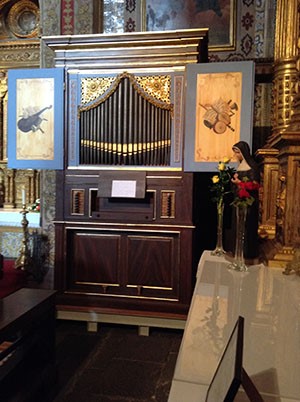 Church of São João Evangelista (Colégio), Funchal
Church of São João Evangelista (Colégio), Funchal
This instrument, with 1586 sounding pipes, is situated in a religious space with certain particularities. As a church typical of those belonging to Jesuit colleges, with a broad nave and quite a gentle acoustic, the organ had to be specially conceived, especially with regard to the measurements of the pipes. Thus all the pipework of the instrument has been specifically tailored to produce a full sound, and each stop produces a timbre with an individual personality, forming part of a harmonic ensemble based more on the sound of fundamentals and less on harmonics. It was also felt to be essential to give the instrument a certain ‘latin’ sonority that would favour performance of ancient music of the Italian, Spanish and Portuguese schools of the 17th and 18th centuries.
Another aspect to be taken into consideration was the need to complement the current range of organs available locally: the new organ responds in an ideal fashion to the performance of works of periods and of technical and artistic requirements that none of the 24 historic instruments of Madeira cater adequately for. It also enhances the range of organs that constitute the island’s heritage by being present in this particular religious space, as well as by existing side by side with other historical instruments. In the decision to build it for this church, not only were the issues of acoustic, aesthetic and liturgical space taken into account, but also the presence there of an important historic instrument which is currently on the list of instruments undergoing restoration.
I Manual - Órgão Principal (C-g’’’)
Flautado aberto de 12 palmos (8’)
Flautado tapado de 12 palmos (8’)
Oitava real (4’)
Tapado de 6 palmos (4’)
Quinzena (2’)
Dezanovena e 22ª
Mistura III
Corneta IV
Trompa de batalha* (bass)
Clarim* (treble)
Fagote* (bass)
Clarineta* (treble)
II Manual - Órgão Positivo (C-g’’’)
Flautado aberto de 12 palmos (8’)
Tapado de 12 palmos (8’)
Flautado aberto de 6 palmos (4’)
Dozena (2 2/3’)
Quinzena (2’)
Dezassetena (1 3/5’)
Dezanovena (1 1/3)
Címbala III
Trompa real (8’)
Pedal (C-f’)
Tapado de 24 palmos (16’)
Bordão de 12 palmos (8’)
Flautado de 6 palmos (4’)
Contrafagote de 24 palmos (16’)
Trompa de 12 palmos (8’)
Couplers
II/I
I/Pedal
II/Pedal
* horizontal reeds
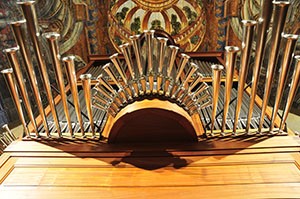 Sunday, 30 October, 12.00, Noon,
Sunday, 30 October, 12.00, Noon, 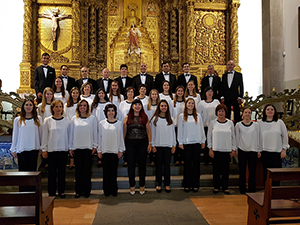 Coro de Câmara da Madeira
Coro de Câmara da Madeira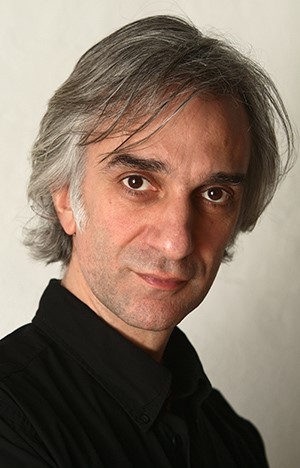 João Vaz
João Vaz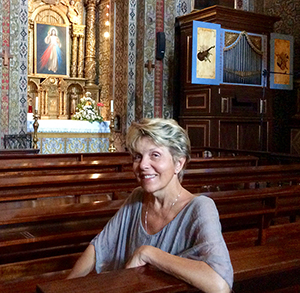 Halyna Stetsenko
Halyna Stetsenko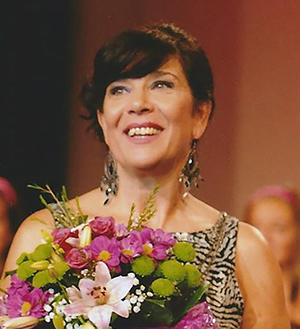 Zélia Gomes
Zélia Gomes